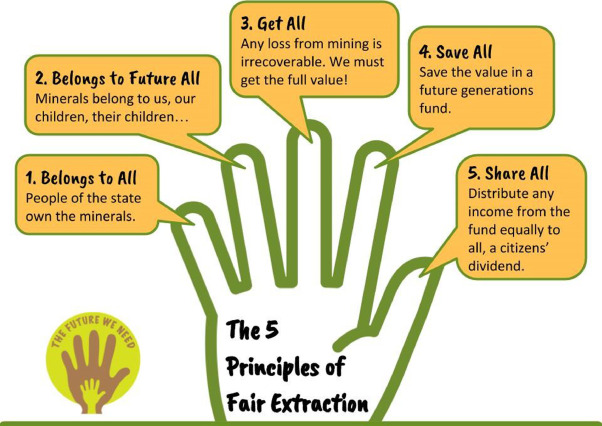New Delhi, January 15th: All natural resources including minerals are indispensable “assets” held in trust by the State for the citizens and our future generations of Indians. However, when these resources are mined for sale through auctions, the receipts from their sale are called “windfall revenues” by major accounting bodies and our government’s standards. This is where we advocate for an urgent change. The sale of this shared intergenerational wealth is not a source of “income”, “earning”, “profit”, “gain”, “benefit” or “revenue” but is the conversion of our finite shared inheritance assets into monetary wealth over which each one of us, as well as our future generations have an equal right. Such is also clearly stated in India’s National Mineral Policy 2019-
“Natural resources, including minerals, are a shared inheritance where the state is the trustee on behalf of the people to ensure that future generations receive the benefit of inheritance. State Governments will endeavour to ensure that the full value of the extracted minerals is received by the State.”
Thus, all financial proceeds from selling mineral resources, and other non-renewable resources, are Capital Receipts, not a source of “income” or “revenue”.
Further, we must also recognise that with this inaccurate nomenclature come significant environmental, social and ecological losses, some of which are still not within the full purview of our accounting systems.
With these grave concerns, we have sent out letters to GASAB (Government Accounting Standards Advisory Board), as well as iCED (International Centre for Environment Audit and Sustainable Development) demanding a change in the way we define and treat our mineral sale proceeds, and urging them to shift the focus from “windfall revenue” paradigm to “shared inheritance” paradigm.
Rahul Basu, Research Director, Goa Foundation said “Treating minerals as a revenue source to be consumed and dissipated, instead of our children’s inheritance is fundamentally immoral. Consuming wealth weakens the nation. Goa Foundation has been advocating for fixing this anomaly in government accounting. The International Public Sector Accounting Standards Board has already started work on a new standard for Natural Resources. I hope GASAB follows their international brethren.”
Himanshu Upadhyaya, Assistant Professor at Azim Premji University said “Our nation’s accounting and auditing institutions shall reorient their focus by considering all natural resources – including major and minor minerals – as shared inheritance and hence must strive to ensure that due diligence is carried out before decision to carry out auctions of mineral blocks. There is an urgent need to carry out performance audits of mining area ecological restoration funds such as Karnataka Mining Environment Restoration Corporation (KMERC), Haryana Mines and Mineral Development Restoration and Rehabilitation Fund (HMMDRF), and Odisha Mineral Bearing Areas Development Corporation (OMBADC)”.
We appeal to the media, as well as all accounting bodies and State governments to recognise the urgent need to reform our treatment and definition of non-renewable resources and their sale proceeds to ensure a sustainable and equitable economic outcome.
Members of the Steering Committee, Mineral Inheritors Rights Association (MIRA)
(Mineral Inheritors Rights Association is an association of several civil society groups and networks in India working to ensure democracy, social justice, equity, transparency, and accountability in extractive governance)

Leave a Reply